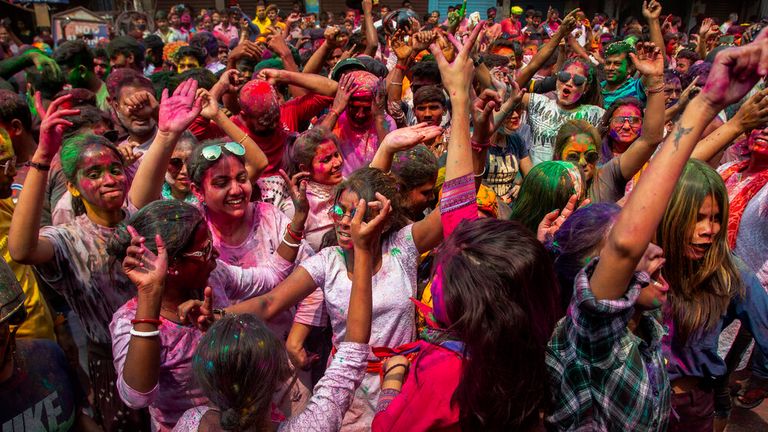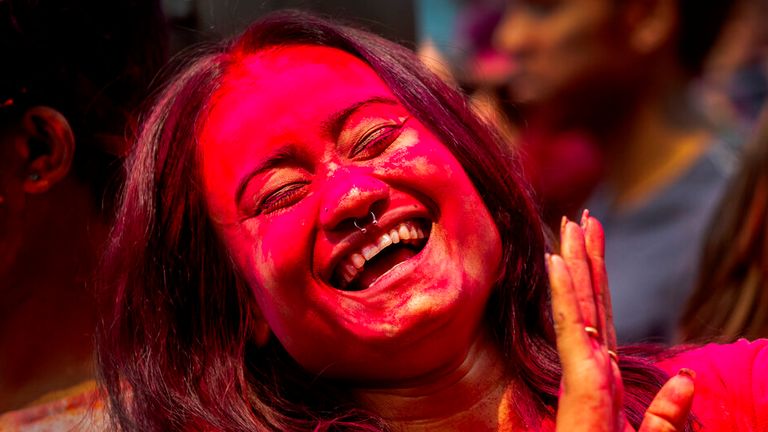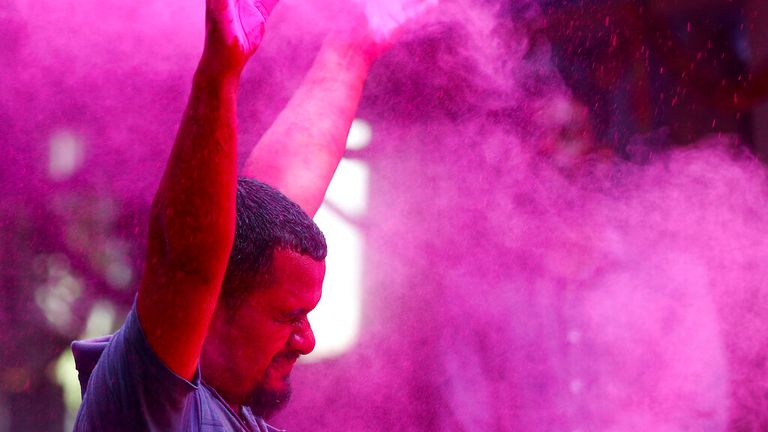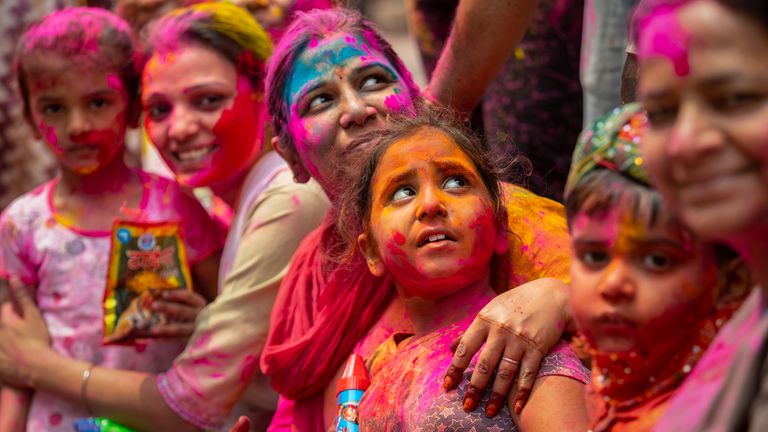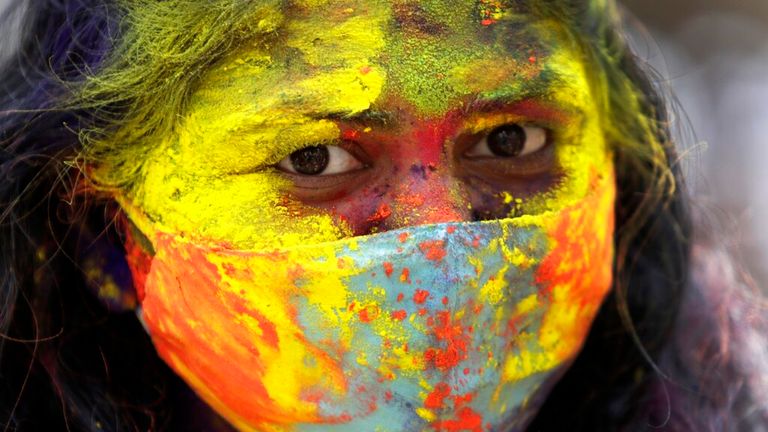COVID-19: Hindus gather for Holi celebrations despite virus cases continuing to soar
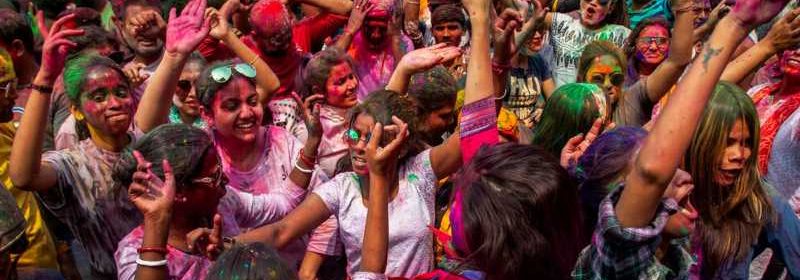
Hindus have been holding outdoor Holi celebrations despite Indian states restricting large gatherings in an attempt to contain a resurgence of the coronavirus.
Millions of people would normally be able to throw coloured powder at each other in outdoor events as part of Holi, which marks the advent of spring and is widely celebrated throughout Hindu-majority India.
However, for the second consecutive year, people were encouraged to stay at home to avoid turning the festivities into superspreader events – but the appeals failed to stop people gathering in large crowds.
India‘s confirmed cases of COVID-19 infections have exceeded 60,000 daily over the past week from a low of about 10,000 in February.
On Monday, the health ministry reported 68,020 new cases, the sharpest daily rise since October last year. It took the nationwide tally to more than 12 million reported infections.
Daily deaths rose by 291 and the virus has so far killed 161,843 people in the country.
The latest surge is mainly centred in the western state of Maharashtra, where the authorities have tightened travel restrictions and imposed night curfews.
Cases are also rising in the capital New Delhi and the states of Punjab, Karnataka, Gujarat, Tamil Nadu, Haryana and Madhya Pradesh.
The surge has coincided with multi-stage state elections marked by large gatherings and roadshows, and the Kumbh Mela, or pitcher festival, celebrated in northern Haridwar city, where tens of thousands of Hindu devotees take a daily holy dip into the Ganges river.
Health experts worry that gatherings will lead to increased clusters of infections and say the situation can be controlled if vaccination is opened up for more people and safety guidelines are strictly followed.
India, with a population of more than 1.3 billion, has vaccinated about 60 million people, of which only nine million have so far received both doses of vaccine.
More than 60 million doses manufactured in India have been exported abroad, prompting widespread criticism that domestic needs should be given priority.
The government said last week that there would be no immediate increase in exports and said vaccines will be given to everyone aged over 45 starting on 1 April.
Source: Read Full Article

